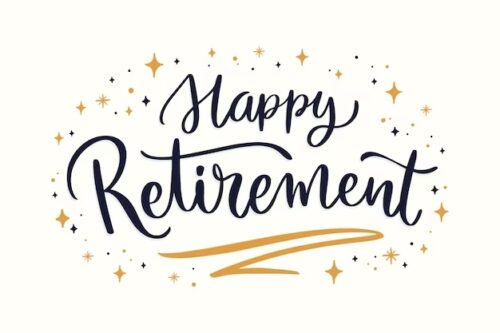“Don’t underestimate the value of Doing Nothing, of just going along, listening to all the things you can’t hear, and not bothering.”
—Pooh’s Little Instruction Book (#aff) by A.A. Milne

Recently, I got a small taste of what retirement could look like for me.
My wife was on a business trip for the week. I only had a couple of client engagements, and I was hyper-efficient with the rest of the work that I felt like I needed to do (note: one of the benefits of being an entrepreneur is that you get to say what work needs to be done, and then you get to work to the task, not to time). Therefore, I had a lot of free time on my hands.
Normally, I would take the dog for a bunch of walks, but he was still recovering from ACL reconstruction, which I detailed in “Financial Independence Means Avoiding Tough Money Decisions.”
So, I worked out. I rode my bike. A lot. I met a friend for dinner almost every night. I read. A lot.
But, I also wasted a lot of time. I did a lot of the “Internet loop.” I slept longer than I usually do. There were times when I was on the brink of boredom before I’d snap out and find something useful or rewarding to do.
While my wife and I have discussed what our retirement will look like once we reach PIRE in generalities, we haven’t been very specific in our planning. Given the week that I recently experienced, we’ll need to be much more specific in our discussions before we pull the trigger to retire, or else the first couple of months may be filled with puttering and tinkering until we find our groove.
Two studies have revealed what makes people in retirement happiest. The Harvard Study of Adult Development and the National Institute of Health’s Growing Older in America: The Health and Retirement Study point out some common factors of happy retirees.
Retirement Happiness Isn’t Kicking Back on the Porch and Watching Traffic Go By

Between the two studies, there are three common factors pointing to happiness in retirement, as well as some surprising statistics.
Healthy Retirees are Happy Retirees
While aches and pains are expected as one gets older, functional ability leads to not being stuck at the house all day every day. As we saw in “Preventive Medicine Costs Less Than Reactive Medicine,” it’s also cheaper to stay healthy than it is to treat ailments when they occur. This doesn’t mean running a triathlon every day. Instead, it means getting 30 minutes of moderate exercise in at least three times a week.
As the saying goes, mens sana in corpore sano (a sound mind in a sound body). However, having a sound body doesn’t do you any good if your mind goes to rot.
Happy Retirees Keep Mentally Sharp
Those retirees who are engaged in mentally stimulating activities are happier over the long run. However, the key is not to be so mentally engaged that it becomes stressful. There’s a difference between having deep discussions amongst friends or learning a new language and having to figure out why the software still isn’t working an hour before it’s supposed to be launched to the public. One is stimulating and invigorating. The other causes premature gray hairs. According to Dr. Robert Waldinger of the Massachusetts General Hospital, learning and being mentally stimulated in ways that are intrinsically rewarding make the retirees he has studied the happiest.
Happy Retirees Find Meaning in Life
When we ask the existential questions of why we are here and why we exist, we’re often seeking a meaning in life. While we’re working or our kids are at home, we find that meaning through our jobs and through raising kids. In retirement, those foundations of meaning disappear, and if we have not discovered a purpose in life outside of our work environment, we will struggle to find happiness when we retire. Lacking meaning, we will lose a reason to get out of bed or to get off of the couch every day. More bed and couch time = less happiness.
Some Surprising Numbers
In the previously cited National Institute of Health study, some of the results were surprising, both to the retirees and to me.
More than 20% of men and 10% of women work into their mid-70s. It appears that many older Americans still derive their meaning and their raison d’etre out of the workplace.
- Retirees plan to travel more than they do. When asked before retirement about how much more they’d travel, 32.5% said that it would be the same amount, and 29% expected travel and vacation spending to increase. In reality, once they were retired, 44.7% reported a decrease in travel spending, and only 24.9% reported an increase in spending.
- Retirees planned to eat at home more, and they do not. 52.5% of retirees expected to spend less on dining out and 38.6% of them expected their spending to be the same. Once they were retired, only 40.4% decreased spending and only 36.3% of them saw the same amount of spending on dining out. 23.3% increased their spending, compared to only 8.8% of them expecting to spend more. I suspect that retirees who had sufficient retirement income saw a causal link between these two spending numbers.
- Volunteer activities took up more time per month as retirees aged, but fewer retirees volunteered as they aged. Between ages 51-59, 26% of retirees volunteered, averaging 110 hours per month. For those aged 80 and older, the percentage of participation in volunteer activities decreased to 12%, but the average hours spent per month increased to 140. I suspect there are two reasons for this: 1) physical limitations reduced the number of people who actually could volunteer, and 2) the social groups of the 80+ cohort had passed away, leaving the volunteer activities as a place of social interaction for the physically capable survivors.
An Untapped Resource for Retirees
One underutilized resource that was mentioned repeatedly in the write-ups I read about these studies was Meetup. Meetup is a great way to meet like-minded people for activities and topics that you’re interested in. In Fort Worth, there are meetups for a range of interests, from a social running club that even has mimosas after their monthly 5K Saturday morning fun runs to book clubs to political interest groups. I’d caution retirees against the political interest groups; politics can be stressful, and as we saw above, stimulating but not stressful activities are the key to retirement happiness.
I suspect that for people who haven’t figured out what they want to be when they retire, they experience a happiness dip for a period of time until they get into an active groove. Those who never leave the couch continue to be unhappy. For those of you who are retired, if you didn’t think ahead, did you experience this happiness dip? For those of you who are planning on someday being retired, have you thought about what exactly you want to do when you’re retired? Your happiness may depend on it!
Author Profile
- John Davis is a nationally recognized expert on credit reporting, credit scoring, and identity theft. He has written four books about his expertise in the field and has been featured extensively in numerous media outlets such as The Wall Street Journal, The Washington Post, CNN, CBS News, CNBC, Fox Business, and many more. With over 20 years of experience helping consumers understand their credit and identity protection rights, John is passionate about empowering people to take control of their finances. He works with financial institutions to develop consumer-friendly policies that promote financial literacy and responsible borrowing habits.
Latest entries
 Low Income GrantsSeptember 25, 2023How to Get a Free Government Phone: A Step-by-Step Guide
Low Income GrantsSeptember 25, 2023How to Get a Free Government Phone: A Step-by-Step Guide Low Income GrantsSeptember 25, 2023Dental Charities That Help With Dental Costs
Low Income GrantsSeptember 25, 2023Dental Charities That Help With Dental Costs Low Income GrantsSeptember 25, 2023Low-Cost Hearing Aids for Seniors: A Comprehensive Guide
Low Income GrantsSeptember 25, 2023Low-Cost Hearing Aids for Seniors: A Comprehensive Guide Low Income GrantsSeptember 25, 2023Second Chance Apartments that Accept Evictions: A Comprehensive Guide
Low Income GrantsSeptember 25, 2023Second Chance Apartments that Accept Evictions: A Comprehensive Guide

